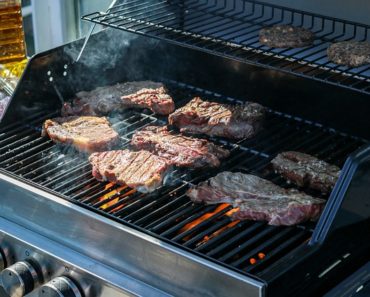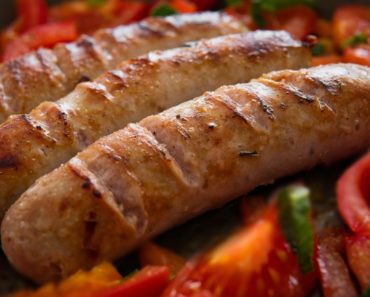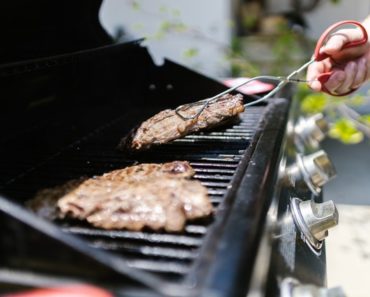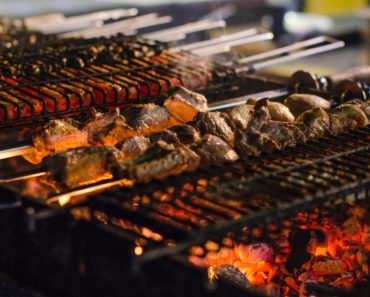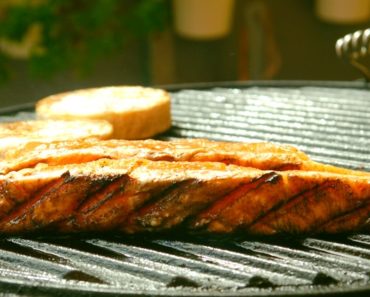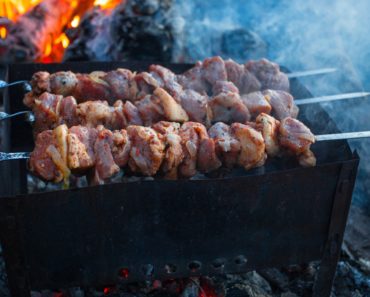Charcoal vs propane
Summer is officially here, and that means grilling out with family and friends. While charcoal is often seen as the go-to for backyard BBQs, propane has many advantages. In this blog post, we’ll explore the pros and cons of charcoal vs propane to help you decide which is right for you. Happy grilling!
What is a Charcoal?
A charcoal is a substance that you can use for cooking. It’s made of carbonized wood, usually came from some softwoods like cork trees or pine trees.
Features of a Charcoal:
Size:
-The size of a charcoal can varies, but the most common size is about the size of a softball.
Price:
-A bag of charcoal can range in price from about $5 to $20, depending on the size and quality of the charcoal.
Design:
-Charcoal comes in both natural and artificial designs. The natural design is simply made from carbonized wood, while the artificial design has added ingredients to make it easier to light.
Style:
-Charcoal comes in both cylindrical and rectangular shapes.
Warranty:
-Charcoal typically has no warranty.
Customer Service:
-Charcoal usually does not have customer service, aside from returning the product if it is defective.
Material:
-Charcoal is made of carbonized wood.
Ease of use:
-Charcoal is easy to use, simply light it and let it burn.
Accessories:
-A charcoal grill typically comes with a grate, a cooking area, and a lid. Some grills also come with a temperature gauge, an ash catcher, and wheels for easy transport.
Convenience:
-A charcoal grill is very convenient for outdoor cooking. There’s no need to worry about where you’re going to plug in your grill, and it doesn’t require any preheating. It also comes with an ash catcher, which makes clean up a lot simpler. However, it is difficult to transport a charcoal grill from place to place, and they typically take longer to cook food than propane grills.
Safety:
-A charcoal grill is not as safe as a propane grill. It can be dangerous lighting the coals on fire, and there’s always a risk of being burned on the grate. There’s also an increased chance that the ash catcher will fail on you, which makes combusting dangerous for both you and your surroundings.
Taste:
-A charcoal grill provides a smoky taste that propane grills can’t achieve. However, since there’s an increased risk of smoke inhalation and the ash catcher fails often, the health benefits are almost non-existent.
Fuel:
-A bag of charcoal contains about 20 pounds worth of charcoal.
Time to Cook:
-Cooking time depends on how much coal is lit at once, but it typically takes between 30 minutes and an hour for food to cook completely.
Environmental Impact:
-Lighting up the charcoal creates harmful toxins that get released into the environment. Also, since it requires more coal than propane to cook, you’re using more fuel and releasing more pollutants.
Speed:
-Charcoal grills typically cook food more slowly than propane grills.
Portability:
-Charcoal grills are not very portable. They require proper transportation and storage and can be difficult to transport from place to place. Also, since it requires more coal than propane, the ash catcher fails often which makes it even more difficult to transport.
Safely:
-Charcoal grills are less safe than propane grills. There’s always a risk of being burned, and there’s an increased chance of the ash catcher failing and combusting.
What is a propane?
-A propane is a gas that is used primarily for outdoor cooking. It is usually propelled by a small tank with an attached hose and regulator, which allows you to control the pressure and how much gas gets released into your grill.
Features of a propane:
Size:
– A propane grill typically measures about two feet long, 20 inches wide and 40 inches tall.
Price:
-Propane grills can range from as low as $100 to as high as $500, depending on the size and style of the grill.
Design:
-A propane tank is usually cylindrical in design, but many newer models are rectangular to make storage easier.
Style:
-A propane grill comes in both cylindrical and rectangular shapes.
Warranty:
-Most propane grills come with a one-year warranty for manufacturing defects only.
Customer Service:
-Propane grills don’t come with phone support or replacement parts; however, they do have online service manuals that will help you troubleshoot any potential problems.
Material:
The body of a propane grill is made from either stainless steel or aluminum.
Ease of use:
-A propane grill is easy to use, simply turn on the gas and light it with a match.
Accessories:
-A propane grill typically comes with a grate, a cooking area, and a lid. Some grills also come with a temperature gauge, an ash catcher, and wheels for easy transport.
Convenience:
-A propane grill is very convenient for outdoor cooking. There’s no need to worry about where you’re going to plug in your grill, and it doesn’t require any preheating. It also comes with an ash catcher, which makes for easy cleanup.
Taste:
-Propane grills offer more control over the flame, which allows you to cook at different temperatures depending on what type of food you’re cooking. This gives your food a delicious smoky flavor that regular grills can’t achieve.
Fuel:
– A tank of propane will last about one hour per pound of pressure. The tank usually holds between 1-20 pounds worth of propane.
Time to Cook:
-The cooking time for food on a propane grill depends on how much fuel is used, but it typically takes between 10 and 30 minutes for food to cook completely.
Environmental Impact:
-Cooking with propane creates harmful toxins that get released into the environment. Also, since it requires more fuel than charcoal to cook, you’re using more fuel and releasing more pollutants.
Speed:
-Charcoal grills typically cook food more slowly than propane grills.
Portability:
-Propane grills are very portable. They require proper transportation and storage and can be transported from place to place very easily.
Safety:
-A propane grill is much safer than a charcoal grill because you don’t have to deal with lighting coals on fire, there’s no chance of the ash catcher failing, and the gas burns cleaner so it releases less harmful chemicals into the environment.
Pros and Cons of charcoal and propane:
Charcoal:
-Much cheaper than propane
-Creates a smoky flavor that many people love
-Can be difficult to start and keep lit
-Produces more harmful toxins than propane
Propane:
-More expensive than charcoal
-Cooks food much faster than charcoal
-Is much safer than charcoal grills
-Can be difficult to transport from place to place. Also, since it requires more coal than propane, the ash catcher fails often which makes it even more difficult to transport.
The similarities of thecharcoal and propane:
– two grills outweigh the differences, but in the end it all comes down to personal preference. Some people love the smoky flavor that charcoal grills produce, while others prefer the convenience and speed of a propane grill. No matter which one you choose, both types of grills are sure to give your food a delicious grilled taste.
The differences of thecharcoal and propane:
-Charcoal grills are much cheaper than propane grills
-Charcoal grills take longer to cook food than propane grills
-Propane grills are much safer than charcoal grills
-Propane grills produce less harmful toxins than charcoal grills
-Propane grills are more difficult to transport from place to place than charcoal grills. Also, the ash catcher often fails which makes it even more difficult to transport.
The winner:
-Overall, propane grills are the better choice when it comes to grilling. They’re much safer than charcoal grills, cook food faster and more evenly, and produce less harmful toxins. However, charcoal grills are still a popular choice for many people due to the unique smoky flavor they produce. So, in the end, it all comes down to personal preference. Choose the grill that best suits your needs and you’re sure to enjoy some delicious grilled food!
FAQs
What is the primary difference between the charcoal and propane?
-Charcoal grills are much cheaper than propane grills
-Charcoal grills take longer to cook food than propane grills
-Propane grills are much safer than charcoal grills
-Propane grills produce less harmful toxins than charcoal grills
-Propane grills are more difficult to transport from place to place than charcoal grills. Also, the ash catcher often fails which makes it even more difficult to transport.
Which grill is better for me?
-It really depends on your needs and preferences. If you want a grill that’s cheap and takes a while to cook food, then a charcoal grill is right for you. However, if you want a grill that’s safe, cooks’ food quickly, and does not burn as much fuel, then a propane grill is right for you.
In what way is a propane grill better than a charcoal one?
-Propane grills are much safer than charcoal grills because there’s no chance of the ash catcher failing. Also, they cook food faster and more evenly which leaves your time to do other things rather than having to constantly check up on your food. Propane grills release less harmful chemicals into the environment as well. In comparison, charcoal grills produce more harmful toxins that get released into the environment as well as taking longer to cook food and burning more fuel in the process. Lastly, since propane tanks can be transported from place to place much easier than a bag of charcoal, propane grills come out on top.
If I want a grill that’s cheap and takes a while to cook food, which one should I get- a propane or coal one?
-If you’re looking for a grill that’s cheap and takes a while to cook food, then a charcoal grill is right for you.
Pros and Cons of the charcoal and propane?
the charcoal pros:
-charcoal grills are much cheaper than propane grills
-charcoal grills take longer to cook food than propane grills
the charcoal cons:
-charcoal grills produce more harmful toxins than propane grills. Propane grill release less harmful chemicals into the environment as well.
the propane pros:
-propane grills are much safer than charcoal grills. There’s no chance of the ash catcher failing. They cook food faster and more evenly leaving your time to do other things rather than having to constantly check up on your food.
-Propane grills release less harmful chemicals into the environment as well. In comparison, charcoal grills produce more harmful toxins that get released into the environment as well as taking longer to cook food and burning more fuel in the process.
the propane cons:
-propane tanks can be transported from place to place much easier than a bag of charcoal which makes it difficult for people who have low back problems or injured backs.
Conclusion:
The charcoal grill is much cheaper than a propane one and takes longer to cook food. However, the propane grill is safer and produces less harmful toxins. The choice between a charcoal or propane grill just depends on your needs and preferences.

